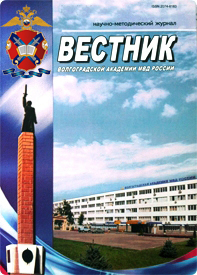The article justifies the dependence of criminally-remedial functions, traditionally related to adversary basis of the criminal trial, on the purpose of criminal procedure and the stages of enforcement of criminal law standards. It has been alleged that the law enforcement stage on establishing the factual basis of the criminal case, that is, factual circumstances constituting the essence of the charge, necessarily involves the fact establishing activity, which for official prosecution is expressed as an investigation function, and for the court - as a function of criminal trial. Implementation of these functions for the above-stated enforcers is the basis for addition of prosecuting function (investigator, interrogator), as well as the function of the case adjudication on the merits (the court). In this respect, it is concluded that an investigator (interrogator) performs a dual function of investigation and prosecution which does not distort the adversarial structure of criminal proceedings, as at the same time they also perform a law enforcement function. Arguments justifying universality of the law enforcement function are given: it is provided for by all the forms of implementation of the rules of criminal and procedural law that establishes guarantees of protection of rights and legitimate interests of the individuals involved in criminal proceedings; it is not always directly linked to the issue of establishing the presence or absence of disputed criminal-legal relations (the grounds for criminal responsibility); is of cross-cutting nature, accompanying activity of the subjects conducting a criminal process, at every stage of law enforcement, supporting implementation of adversarial functions, and thereby ensuring the correctness of application of criminal standards and all the forms of realization of criminally-remedial standards in conformity with public relations objectively emerging in the course of the criminal case proceedings.
the purpose of criminal procedure, function, law enforcement, investigation, prosecution, protection from prosecution, consideration and adjudication of the criminal case on the merits, law enforcement function
1. Zinatullin Z. Z., Turov S. Yu. Evolyuciya ucheniya ob ugolovno-processual'nyh funkciyah // Vestnik Udmurtskogo universiteta. 2012. № 2-1. S. 91-97.
2. Konovalov S. I., Ayvazova O. V. Razdelenie ravnoznachnyh processual'nyh funkciy obvineniya, zaschity i razresheniya dela v sisteme principov ugolovnogo sudoproizvodstva: sovremennye problemy // Izvestiya Tul'skogo gosudarstvennogo universiteta. Ekonomicheskie i yuridicheskie nauki. 2014. Vyp. 3. Ch. 2. S. 11-16.
3. Zinatullin Z. Z. Izbr. tr.: v 2 t. SPb.: Yuridicheskiy centr-Press, 2013.
4. Ugolovnyy process. Problemnye lekcii / pod red. V. T. Tomina, I. A. Zinchenko. M.: Yurayt, 2013.
5. Lazarev V. V. Primenenie sovetskogo prava / nauch. red.: B. S. Volkov. Kazan': Izd-vo Kazan. un-ta, 1972.
6. Borisov G. A. Processual'no-pravovaya otvetstvennost' v sovremennom zakonodatel'stve Rossii [Elektronnyy resurs] // Zhurnal rossiyskogo prava. 2003. № 2. S. 70-78. Dostup iz inf.-pravovogo portala «Garant».
7. Pasport proekta Federal'nogo zakona № 881677-6 «O vnesenii izmeneniy v stat'i 46 i 47 Ugolovno-processual'nogo kodeksa Rossiyskoy Federacii» [Elektronnyy resurs]. Dostup iz sprav.-pravovoy sistemy «Konsul'tantPlyus».
8. Upolnomochennyy po pravam cheloveka v RF: po goryachim sledam [Elektronnyy resurs]. URL: http://ombudsmanrf.org/news/done/view/po_gorjachim_sledam (data obrascheniya: 25.12.2014).
9. Upolnomochennyy po pravam cheloveka v RF: ugolovnoe presledovanie nesovershennoletnego prekrascheno [Elektronnyy resurs]. URL: http://ombudsmanrf.org/news/done/view ugolovnoe presledovanie (data obrascheniya: 14.08.2015).









